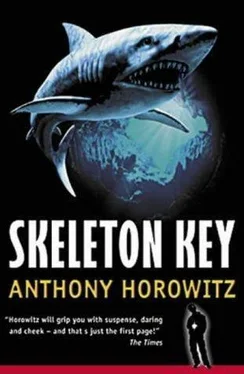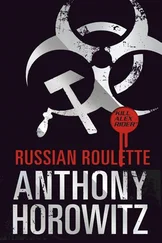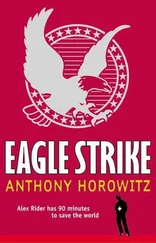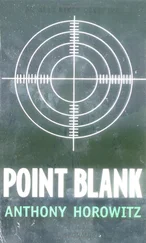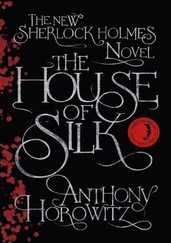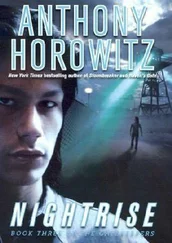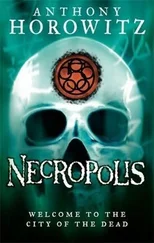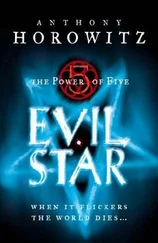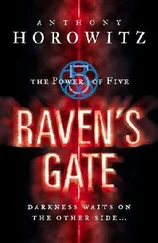But somehow Alex doubted it. And he was still puzzled. A lot of work, a lot of thought had gone into this operation. False papers-with his photograph-had been prepared before he had even known he was coming. A whole identity had been set up for him in Los Angeles. And another agent, Johnson, had possibly died.
A simple surveillance operation? Byrne was nervous. Alex was sure of it. Maybe Turner and Troy were too.
Whatever was happening on Skeleton Key, they weren’t telling him the full truth. Somehow, he’d have to find that out for himself.
It was a room that didn’t really look like a room at all. It was too big. It had too many doors-and not just doors but archways, alcoves and a wide terrace open to the sun. The floor was marble, a chessboard of green and white squares that seemed somehow to exaggerate its size. The furniture was ornate, antique-and it was everywhere. Highly polished tables and chairs. Pedestals with vases and statuettes. Huge, gold-framed mirrors. Spectacular chandeliers. A giant stuffed crocodile lay in front of a massive fireplace. The man who had killed it sat opposite.
General Sarov was sipping black coffee out of a tiny porcelain cup. Caffeine is addictive and Sarov allowed himself only one thimbleful of coffee once a day. It was his single vice and he savoured it. Today he was dressed in a casual linen suit, but on this man it looked almost formal, with not a crease in it. His shirt was open at the collar revealing a neck that could have been carved out of grey stone. A ceiling fan turned slowly, a few metres above the desk where he was sitting. Sarov savoured the last mouthful of coffee, then lowered the cup and saucer back onto his desk. The porcelain made no sound as it came to rest on the polished surface.
There was a knock at the door-one of the doors-and a man walked into the room. Walked, however, was the wrong word. There was no word to describe exactly how this man moved.
Everything about him was wrong. His head sat at an angle on shoulders which were themselves crooked and hunched. His right arm was shorter than his left arm. His right leg, however, was several centimetres longer than his left. His feet were encased in black leather shoes, one heavier and larger than the other. He was wearing a black leather jacket and jeans, and as he approached Sarov his muscles rippled beneath the cloth as if with a life of their own. Nothing in his body was co-ordinated, so although he was moving forwards, he seemed to be trying to go backwards or sideways. His face was the worst part of him. It was as if it had been taken to pieces and put back together again by a child with only a vague knowledge of the human form. There were about a dozen scars on his neck and around his cheeks. One of his eyes was red, permanently bloodshot. He had long, colourless hair on one half of his head. On the other, he was completely bald.
Although it would have been impossible to tell from looking at him, this man was only twenty-eight years old and, until a few years ago, had been the most feared terrorist in Europe. His name was Conrad. Very little was known about him, although it was said that he was Turkish, that he had been born in Istanbul, the son of a butcher, and that when he was nine he had blown up his school with a bomb made in chemistry class when he was given a detention for being late.
Again, nobody knew who had trained Conrad or, for that matter, who had employed him. He was a chameleon. He had no political beliefs and operated simply for money. It was believed that he had been responsible for outrages in Paris, Madrid, Athens and London. One thing was certain. The security services of nine different countries were after him, he was number four on the CIA’s most wanted list, and there was an official bounty of two million dollars on his head.
His career had come to a sudden and unexpected end in the winter of 1998 when a bomb that he had been carrying-intended for an army base-had detonated early. The bomb had quite literally blown him apart, but it hadn’t quite managed to kill him. He had been stitched back together by a team of Albanian doctors in a research centre near Elbasan. It was their handiwork that was so visible now.
He was working as Sarov’s personal assistant and secretary. He had done so for two years. Such work would once have been beneath him but Conrad had little choice now. And anyway, he understood the scope of Sarov’s vision. In the new world that the Russian intended to create, Conrad would have his rewards.
“Good morning, comrade,” Sarov said. He spoke in fluent English. “I hope we’ve managed to recover the rest of the banknotes from the swamp.”
Conrad nodded. He preferred not to speak.
“Excellent. The money will, of course, have to be laundered. Then it can be paid back into my account.” Sarov reached out and opened a leather-bound diary. There were a number of entries, each one in perfect handwriting. “Everything is proceeding according to schedule,” he went on. “The construction of the bomb…?”
“Complete.” Conrad seemed to have difficulty getting the word out of his mouth. He had to twist his face to make it happen at all.
“I knew I could rely on you. The Russian president will be arriving here in just five days’ time. I had an email from him confirming it today. Boris tells me how much he’s looking forward to his holiday.” Sarov smiled very briefly. “It will, of course, be a holiday that he is unlikely to forget. You have the rooms prepared?” Conrad nodded. “The cameras?”
“Yes, General.”
“Good.” Sarov ran a finger down the diary pages. He stopped at a single word that had been underlined with a question mark. “There still remains the question of the uranium,” he said. “I always knew that the purchase and delivery of nuclear material would be dangerous and delicate. The men in the aircraft threatened me and they have paid the price. But they were, of course, working for a third party.”
“The Salesman,” Conrad said.
“Indeed. By now, the Salesman will have heard what happened to his messenger boys. When no further payment arrives from me, he may decide to go ahead with his threat and alert the authorities. It’s unlikely, but it’s still a risk I am not prepared to take. We have less than two weeks until the bomb is detonated and the world takes on the shape that I have decided to give it. We cannot take any chances. And so, my dear Conrad, you must go to Miami and remove the Salesman from our lives-which will, I fear, involve removing him from his.”
“Where is he?”
“He operates out of a boat, a cruise liner called Mayfair Lady. It’s usually moored at the Bayside Marketplace. The Salesman feels safer on the water. Speaking personally, I will feel safer when he is underneath it.” Sarov closed the diary. The meeting was over. “You can leave straight away. Report to me when it is done.”
Conrad nodded a third time. The metal pins in his neck rippled briefly as his head moved up and down. Then he turned round and walked, limped, dragged himself out of the room.
They had a late breakfast at a café in Bayside Marketplace, right on the quayside, with boats moored all around them and bright yellow and green water taxies nipping back and forth. Tom Turner and Belinda Troy had knocked on Alex’s door at ten o’clock that morning. In fact, Alex had been awake for several hours. He had fallen asleep fast, slept heavily and woken too early-the classic pattern of trans-Atlantic jet-lag. But at least he’d had plenty of time to read through the papers that Joe Byrne had given him. He now knew everything about his new identity-the best friends he had never met, the pet dog he had never seen, even the high school grades he had never achieved. And now he was sitting with his new mother and father watching the tourists on the boardwalk, strolling in and out of the pretty white-fronted boutiques that cluttered the area. The sun was already high, the glare coming off the water almost blinding. Alex slipped on a pair of Oakley Eye Jackets and the world on the other side of the black iridium lenses became softer and more manageable. The glasses had been a present from Jack. He hadn’t expected to need them so soon.
Читать дальше
